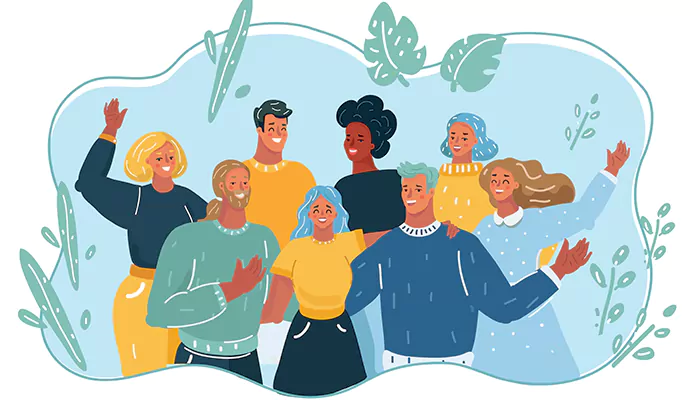Navigating Gen Z: Understanding Trends In The Social Media Landscape
- Admin
- 1 year ago
- 4 minutes read

Exploring the digital footprints and cultural shifts defining Gen Z's online presence
People born between the mid-1990s and early 2010s make up Generation Z. They have become a major force in social media. It's important to know how Gen Z's behaviours, preferences, and values will affect the future of social contact, communication, and cultural expression because they are changing and shaping digital landscapes.
Being Real Over Being Perfect
Gen Z values sincerity over curated perfection, which is different from previous generations. They want real connections and material that is relevant to them, and they value honesty and openness in their online interactions. Social media sites have turned into virtual hubs where being real is paramount.
Communication through pictures
With apps like Instagram, Snapchat, and TikTok, people mostly talk to each other through pictures. Gen Z relies on pictures, videos, and short-form material because they like getting things right away and seeing stories. Emojis, GIFs, and filters are now essential for sharing feelings, thoughts, and stories, even when people don't speak the same language. They make digital talks more interesting.
Gen Z's social media world has become a hub for influencer culture, which shapes customer behaviour, lifestyle goals, and cultural trends. With their inspiring lives and likeable personalities, influencers have a lot of power over the people who follow them. They set trends, promote products, and change how people think about brands. Gen Z wants partnerships with influencers to be real, and they prefer partnerships based on genuine affinity and shared ideals.
Gen Z really likes how content on platforms like Snapchat and Instagram Stories disappears after a short time. This is because they want to have experiences that are real and unedited. Ephemeral content gives users a brief look into their lives, creating a sense of urgency and uniqueness that keeps them interested and feeds FOMO (fear of missing out).
Promoting social change and rights online
Gen Z is known for caring about others and wanting to make the world a better place. Social media is a powerful tool for digital advocacy. It helps Gen Z amplify voices that aren't being heard, bring attention to important problems, and get people to work together. From movements for racial justice to action against climate change, social media has become a battleground for social change, bringing together youth-led movements and making real-world changes.
Digital Health and Privacy
Gen Z is becoming more careful about protecting their online names and mental health because they are worried about data privacy, online safety, and their digital well-being. People are looking closely at social media sites to see how they handle user data, how they moderate material, and how they affect users' mental health. Gen Z wants more openness, responsibility, and control for users, and they want platforms to put privacy, safety, and digital well-being projects at the top of their list of priorities.
Niche Communities Are Starting to Form
Because of how social media is broken up, niche communities and subcultures have grown up where people with similar identities, hobbies, and beliefs come together. From meme cultures to fandoms, these groups help people feel like they join, make friends, and share their culture, even if they live in different places or follow different social rules. Gen Z's interest in niche groups shows that they want real connections and cultural resonance in a digital world that is becoming more and more fragmented.
Gen Z's use of social media is marked by honesty, communication that is centred around images, the rise of niche communities, digital activism, and material that disappears quickly. Businesses, brands, and policymakers who want to connect with and empower the digital youth need to understand these trends more than anything else.












